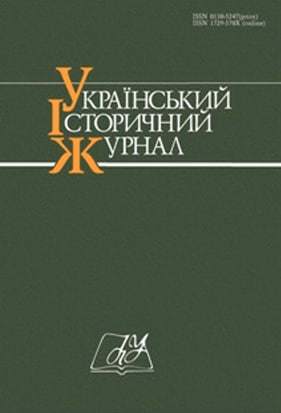Gender Representations and Practices in Bukovyna of the Late Nineteenth – Early Twentieth Centuries in the Light of O.Kobylianska’s Ego-Documents
DOI:
https://doi.org/10.15407/uhj2021.02.065Keywords:
women’s question, Kobylianska, ego-documents, gender-role stereotypes, women’s rights, emancipation, women’s movementAbstract
The position of women in the Ukrainian lands in the late 19th and early 20th centuries is still largely characterized by researchers on the basis of the involvement of mass documentary sources, using ego-documents as secondary. However, it is the sources of personal origin that allow the deepest understanding of the influence of gender stereotypes on the development of personality. Autobiographies, diaries and letters of O.Kobylianska reveal the peculiarities of the influence of gender stereotypes on everyday practices and attitudes to the women’s question in Bukovyna in the selected period.
The purpose of the article is to determine the peculiarities of the attitude to the women’s question in the intellectual Bukovynian families and the influence of established ideas on the everyday practices of educated women of the region on the basis of ego-documents of O.Kobylianska.
The research methodology is based on the deconstruction of the texts of O.Kobylianska’s ego-documents to present gender-role stereotypes, the struggle against which was the basis for the formation of the women’s question in Bukovyna in the late 19th – early 20th centuries.
The scientific novelty lies in the comprehensive study of ego-documents, which made it possible to reconstruct the peculiarities of the position of women, which are difficult to characterize solely on the basis of mass documentary sources.
Conclusions. In the outlined chronological period, Bukovynian society mostly maintained conservative ideas about the role of women as mothers and families – as the main environment for the realization of women, which is fully confirmed by the ego-documents of O.Kobylianska. Autobiographies, diaries and letters of the writer allow you to immerse yourself in the personal experiences of the author and on the basis of micro-history research to detail the characteristics of the existing society in the field of women’s education, women’s rights in the family, opportunities for self-realization in public life and literature.


